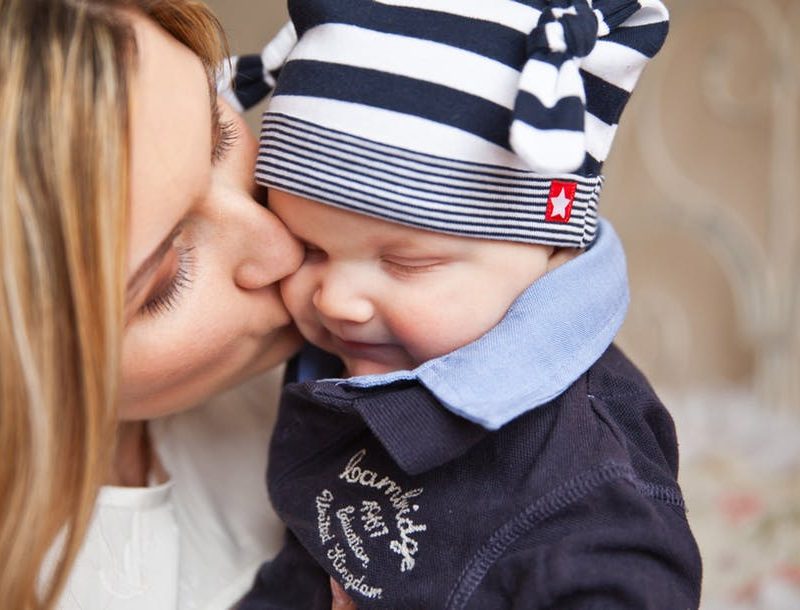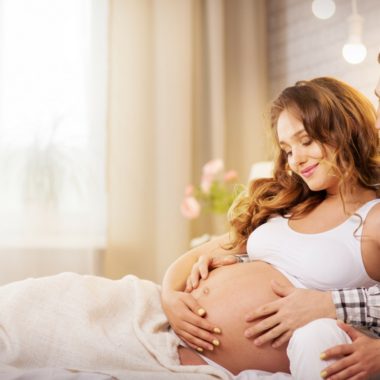Women are given tons of advice and opinions on what they should do once they become pregnant, but unfortunately, starting an exercise routine usually isn’t one of them. What many women don’t know, is that exercise is actually recommended during pregnancy, and that there are many health benefits that come along with exercising during and after pregnancy. Once you have spoken to your OBGYN and have been cleared to exercise, you will find that exercising during pregnancy strengthens and prepares your body for all the changes it will go through while your baby is growing, as well as prepares you for labor, and helps you stay active after giving birth so you can keep up with your little one.
Check out the top reasons why you should stay active during pregnancy:
- Exercise helps regulate blood sugar: Regular exercise increases the use of fat as an energy source during exercise and at rest; this spares sugar and maintains a more consistent blood glucose level, which can help decrease dizziness or feeling light-headed (symptoms of low blood sugar). Regular exercise also reduces insulin resistance, which causes a buildup of sugar in your bloodstream due to inefficient sugar absorption and can lead to Gestational Diabetes. This is important because Gestational Diabetes can lead to larger babies and problems with preterm labor. Exercising can help prevent or reduce the effects of Gestational Diabetes on your body and your baby.
- Exercise helps regulate blood pressure: Regular exercise helps increase blood volume, size of the heart chambers, and the volume of blood pumped with each heartbeat. This helps bring more blood to the tissues and helps regulate your blood pressure. Having regulated blood pressure helps prevent feelings of dizziness and light-headedness. In an unregulated system, having high blood pressure is associated with pre-eclampsia, which can cause serious problems during pregnancy for both you and your baby.
- Exercise helps strengthen your cardiovascular system: Regular exercise helps your body become more adept at bringing blood to your heart. The more active you are, the better you are able to circulate blood around your body so that it does not pool in one area and cause swelling. This helps in preventing or reducing hemorrhoids, varicose veins, leg cramps, and ankle swelling.
- Exercise helps strengthen your respiratory system: Regular exercise helps your body become more adept at circulating oxygen to the tissues and removing metabolic waste from the cells. Exercise helps improve the way the body utilizes the oxygen to perform work, and it stimulates the growth of new small vessels in the body which help with the transportation of the oxygen. Exercising can also help strengthen the placenta and improve the way the fetus receives oxygen and nutrients.
- Exercise helps improve metabolism and digestion: Regular exercise helps improve the way the body uses the food you eat, so that the calories you are consuming are being used up instead of being stored as fat. Exercising also helps with digestion; the hormones released while exercising can help promote bowel movements and decrease constipation.
- Exercise can help improve mood: When exercising, your body releases feel-good chemicals such as endorphins, and neurotransmitters such as serotonin (which can help alleviate depression).
- Exercise can help improve sleep quality: Not only will being active during your day make you more tired toward night-time if you have trouble sleeping, but it has also been shown that the increase in body temperature from exercise helps trigger sleepiness as your temperature drops slowly over time.
- Exercise can ease body aches associated with pregnancy (back pain, pelvic pain etc…): Regular exercise that targets specific muscle groups helps strengthen areas that tend to become weak or overused as your body grows and changes during pregnancy. Strengthening your muscles so that they are able to compensate for the growing bump that changes your body along with your balance will help ease back pain. Adapting proper body mechanics will also help ease pains associated with improper use of muscles as you try to adjust for the changes your body goes through during pregnancy.
- Exercise can help you prepare your body for labor: All of the previously mentioned adaptations that happen with regular exercise; along with improved muscle strength and endurance, can make you less tired during labor, and can help make your contractions more powerful and targeted.
- Exercise can help you prepare your body for a quicker recovery: If you regularly exercise and focus on strengthening your core muscles, you can be better equipped to deal with a diastasis recti (if one occurs during your pregnancy). If you work on strengthening your core and pelvic floor muscles, you can be better equipped to deal with incontinence that might occur after pregnancy. Beginning to exercise during pregnancy and strengthening the muscles and areas which can become weak after pregnancy will help you be better equipped to maintain that strength, as well as help you bounce back faster after giving birth.
Once you are cleared by your OBGYN, don’t be afraid to start exercising. You will find that you become stronger, have more energy, and feel better after exercising. Being pregnant should not be a reason why you can’t lead a healthy and active lifestyle, instead, it should help motivate you to become the healthiest and strongest woman you can be; for yourself, and for your growing baby.
- Finding the Right Type of Exercise During Pregnancy - September 26, 2017
- Top Reasons Why You Should Start Exercising During Pregnancy - September 6, 2017








